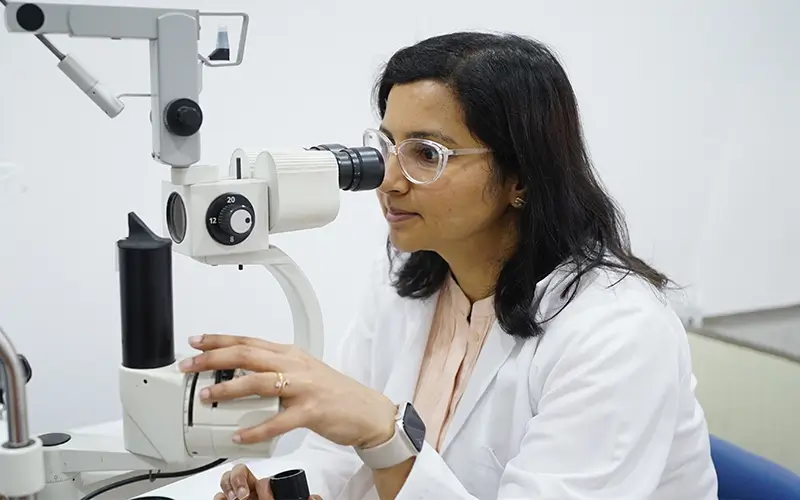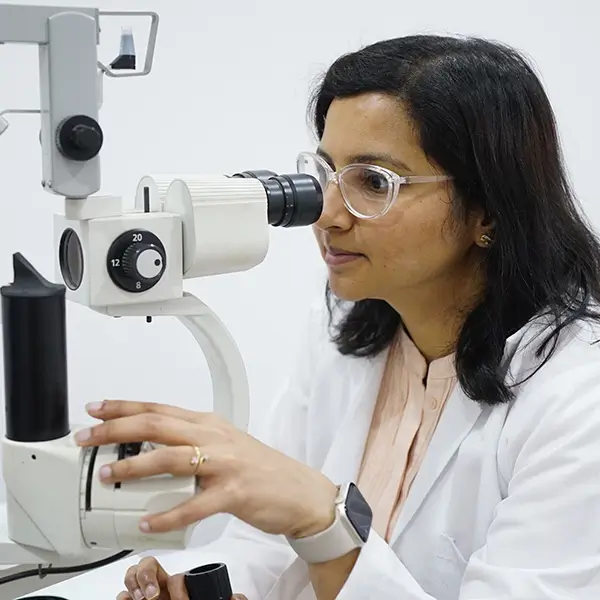Treatments modalities used alone or in combination include:-
Eye Drops
Certain prescription eye drops decrease intraocular pressure by reducing the amount of fluid your eye produces. Several different classes of glaucoma medications are available to provide pressure reduction including beta-blockers, prostaglandin analogues, alpha-adrenergic agonists, miotics, Rho kinase inhibitors, and oral and topical carbonic anhydrase inhibitors. These medications work by either reducing the rate at which fluid in the eye is produced or by increasing the outflow of fluid from the eye.
Oral Medications
Like eye drops, oral prescription medications help reduce pressure inside your eye.
Laser Therapy
Using a laser beam, your ophthalmologist opens clogged channels inside the eye, releasing fluid build-up. Laser therapy is an outpatient procedure.
Filtering Surgery
Filtering surgery to create a new passage for fluid drainage. Surgery is usually reserved for cases that cannot be controlled by medication and after appropriate laser treatment.
Implant Surgery
To enhance filtering surgery, your ophthalmologist may insert tiny drainage devices or “aqueous shunts” to keep the surgically created drainage opening from closing.
MIGS
Minimally invasive glaucoma surgery (MIGS) has been developed in recent years to lower eye pressure and prevent progression of glaucoma. MIGS procedures are indicated in certain types of glaucoma and work by using microscopic-sized equipment and tiny incisions.
In some cases, a single surgery is not enough to slow down the progress of glaucoma. Repeat surgery / surgeries and /or continued treatment with medicines may be necessary. Without treatment, glaucoma can cause permanent blindness.
Cataract Surgery
Cataract surgery can reduce the eye pressure temporarily in some patients, but this effect is usually not sustained in the long run. In patients with glaucoma or those suspected to have glaucoma, cataract surgery requires a special understanding that cataract surgery can lead to a rise in eye pressure insome patients. Patients who have undergone glaucoma surgery previously need special care while undergoing cataract surgery.


